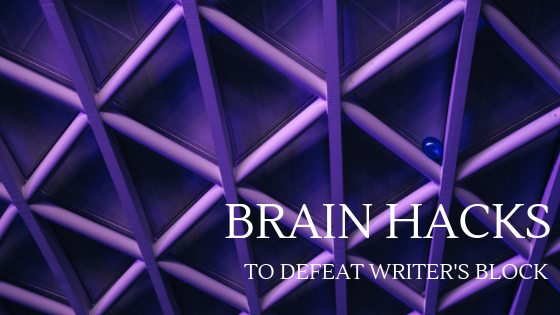Have you said something like this before? “Give me a microphone and an audience, and I can talk about a topic forever. But don’t make me write–I’ll go completely blank.”
I’ve heard so many variations of this kind of writer’s block over the years. I agree—that blank screen or empty piece of paper is so much pressure.
Your problem isn’t a lack of ideas. According to Seth Godin, it could be a problem of not enough bad ideas.
I learned recently that we can thank Percy Bysshe Shelley, AKA the husband of Frankenstein writer, Mary Shelley, for the creation of “writer’s block” as a legit thing. (source: https://www.akimbo.me/blog/episode-4-no-such-thing-as-writer-s-block) It’s rooted in the pursuit of perfection and the fear of not achieving said perfection. He says that when you give yourself permission to generate bad ideas, eventually you’ll arrive at a good one.
The key is to give yourself permission to not be perfect.
This isn’t something that happens overnight.
At least it didn’t happened for me that way. I’ve had to trick my brain out of perfectionism.
Here are some brain hacks I’ve used to leap over my writer’s blocks.
- Rename my first draft to Zero Draft. “It’s just a zero draft, it doesn’t matter. I can write whatever I want! Throw rules and convention out the window!” Like the first part of a brainstorming session, the goal isn’t to judge the idea, but to generate as many ideas as possible. I resist the urge to edit as I go. Simply write, eyes closed.
- Trade tech for paper and pen. Maybe it’s because I learned how to research and write in the 90s, but sometimes I just have to close my laptop and grab a pen and paper to sketch an outline of my ideas or thesis statements. Eventually, the ideas and words start flowing faster than my hand can keep up.
- Write in a different kind of computer program. I don’t know about you, but looking at that blank page in MS Word or Google Docs sucks all the creativity out of me. However, way back when I used to blog regularly, I rarely struggled coming up with ideas. So when I had deadline for a creative project, I opened up my blog site and began typing in the tiny white box. It was simply a way of tricking my brain into creating a zero draft. Now, I start my first draft—I mean, “zero draft”—in Evernote.
- Talk it out. Talk to a friend who will take notes for you. Or ramble about your topic, paying attention to what you’re saying and the flow of the argument you start to make. If you don’t have someone to talk to when inspiration strikes, record yourself on your phone’s voice recorder. Listen to yourself later and jot notes or phrases you particularly like. Sometimes, that’s all it takes to get the ideas flowing.
And if that still doesn’t work, or you simply don’t have the time to develop your idea into something that people would enjoy reading, ask for help.
Ghostwriters enjoy turning someone else’s stories and ideas into works of art. Imagine: all you have to do is talk. The writing is done for you and you still get the credit! Talk about an easy way to skip out on writer’s block!

